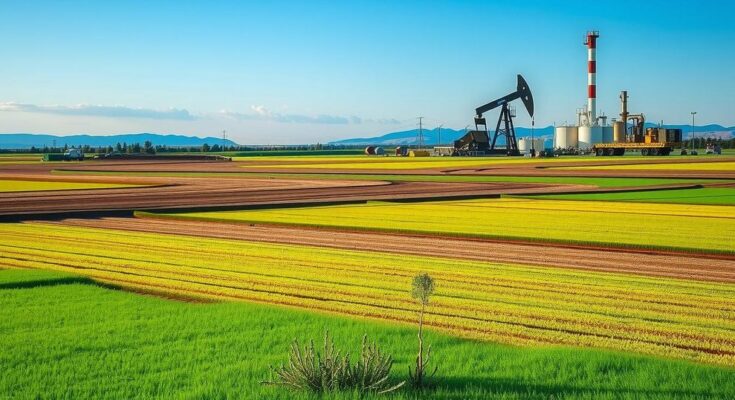Secretary of State Marco Rubio will travel to Guyana to offer US security support amid Venezuela’s claims over the oil-rich nation. The memorandum of understanding aims to bolster cooperation against regional threats, specifically from Venezuela. With Guyana on track to become the top oil producer per capita, tensions between the two nations have intensified over territory disputes.
Secretary of State Marco Rubio is scheduled to visit Guyana to extend US security support to the oil-rich nation as it faces territorial threats from Venezuela. Over the past decade, Guyana has discovered substantial oil reserves, positioning itself to be the world’s largest oil producer per capita this year, surpassing Qatar and Kuwait. Given the escalating tensions with Venezuela, Rubio will sign a memorandum outlining security cooperation, as confirmed by the State Department.
Rubio’s visit follows discussions with Caribbean nations in Jamaica and will include a stop in Suriname, another nation experiencing growth in oil production. The Trump administration envisions a partnership with Guyana similar to its relations with oil-rich Gulf Arab nations, aiming for collaborative security measures against regional threats, particularly from Venezuela.
US special envoy Mauricio Claver-Carone emphasized that the security of Guyana is a priority akin to the US efforts with Gulf states. He referred to the perceived risks from Venezuela as “unacceptable,” expressing a desire for a binding security cooperation agreement. Guyana’s President Irfaan Ali, who is navigating a reelection campaign, has welcomed strengthened defense relations with the United States, including joint maritime patrol efforts.
Tensions have been exacerbated by Venezuela’s claim over the Essequibo region, which encompasses much of Guyana and its oil production. Recently, Guyana condemned an incursion by a Venezuelan military vessel into its waters, which Venezuela denied, further straining relations. The Venezuelan parliament has passed legislation declaring Essequibo as its 24th state, a claim that has not received international approval.
Historically, Guyana maintains that its borders were confirmed by an 1899 arbitration panel, despite Venezuela claiming the Essequibo River as a boundary as early as 1777. The Trump administration’s focus on increasing oil production aligns with both economic and security interests, diverging from previous administration goals of renewable energy diversification in response to climate change. In recent years, Texas-based ExxonMobil has emerged as the lead operator in Guyana, expecting to produce 1.3 million barrels per day by the decade’s end, vastly exceeding declining Venezuelan output due to mismanagement and sanctions.
Amidst these developments, the Trump administration has retracted Chevron’s sanction exemptions to operate in Venezuela, reflecting its overarching strategy against a regime it views unfavorably.
In summary, Secretary of State Marco Rubio’s upcoming visit to Guyana underscores the United States’ commitment to reinforcing security ties in response to Venezuela’s territorial threats. As Guyana embarks on becoming a leading oil producer, the Trump administration aims to cultivate a robust partnership akin to its relationships with oil-rich nations in the Gulf, while addressing geopolitical tensions in the region. Moreover, the dynamics with Venezuela highlight the complexities of historical claims and emerging security considerations that are shaping the future of US-Guyana relations.
Original Source: www.bssnews.net




